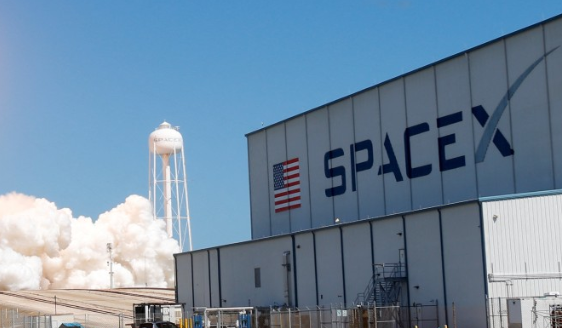
(Photo : spacex.com)
- SpaceX has secured a $733 million contract from the US Space Force for eight launches.
- The launches, scheduled for 2026, include seven for the Space Development Agency and one for the National Reconnaissance Office.
- The contract is part of a broader trend of the US military leveraging commercial space capabilities for national security missions.
- This development underscores the strategic importance of commercial space companies in supporting national security and maintaining the US's strategic advantage in space.
In a significant stride for the US Space Force, Elon Musk's SpaceX has been awarded a $733 million contract for eight launches. The contract, issued under the National Security Space Launch Phase 3 Lane 1, is a testament to the growing reliance of the US military on commercial space companies for its strategic needs. The launches, scheduled to occur no earlier than 2026, include seven for the Space Development Agency and one for the National Reconnaissance Office.
The awarding of this contract to SpaceX is a strategic move in the era of Great Power Competition. Brigadier Gen Kristin Panzenhagen, programme executive officer for Assured Access to Space, emphasized the importance of not leaving capability on the ground. The Phase 3 Lane 1 construct, he explained, allows the US to execute launch services more quickly for risk-tolerant payloads, thereby putting more capabilities on orbit faster to support national security.
SpaceX's Role in National Security
Lt Col Douglas Downs, SSC's materiel leader for Space Launch Procurement, expressed excitement about the innovative NSSL Phase 3 Lane 1 effort. He praised the industry's response to the competition and highlighted the dual-lane strategy's benefits, which include a streamlined process from mission acquisition to launch and the potential for increasing competition and diversity with the ability to on-ramp new providers and systems annually.
The Space Systems Command (SSC), the US Space Force's field command responsible for acquiring and delivering resilient war fighting capabilities, manages a $15.6 billion space acquisition budget for the Department of Defence. It works in partnership with joint forces, industry, government agencies, and academic organizations. The Phase 3 Lane 1 award period is from fiscal year 2025 to fiscal year 2029, with the potential for a five-year extension.
The Future of Space Launch Infrastructure
The contract with SpaceX is part of a broader trend of the US military leveraging commercial space capabilities for national security missions. This approach promotes competition, encourages technological advancement, and ensures a diverse and responsive space launch infrastructure. By working with commercial partners, the Space Force aims to maintain a strategic advantage in space, enhance mission flexibility, and support the rapid deployment of satellites critical for national defense.
Historically, the US has enjoyed uncontested freedom of movement across multiple domains and, strategically, around the world. This advantage allowed the Army and the joint logistics enterprise to move personnel, supplies, and equipment around the globe to support operations since World War I. However, as the Army developed the multi-domain operations ready force, the global stage has continued to evolve. The demand to shoot, move, communicate, and sustain forces over vast distances, through contested domains, in a competitive space with increased sustainment demands from the joint force has evolved the challenges of the joint logistics enterprise.
* This is a contributed article and this content does not necessarily represent the views of btin.co.in









